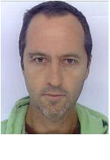Principles
Four months ago en route to work I read an article about how the blood transfusion services in Syria had been taken over by the Ministry of Defence as a means to target patients injured in demonstrations against the government. I found this deeply disturbing and described it as a “violation of medicine” in an e-mail to some senior colleagues later that day. As the world watches the conflict unfold in Syria, principles and ethics may seem a little academic and self-righteous, but ethical principles underlie our very claims to civilisation and humanity. For the medical profession, the Hippocratic Oath forms a binding contract between practitioners and society, outlining the responsibilities we have toward our patients and the communities in which we work. Even in times of conflict, in fact especially in times of conflict, there are international rules and ethical principles that protect health facilities, medical staff, and patients’ access to care.
Pragmatism and Practice
For MSF the principles of neutrality, independence, and medical ethics are active operational ideas, not just philosophical ones. However, in moments of crisis our preoccupation is direct medical action. For months we have attempted to negotiate access to Syria through official channels. As the conflict deteriorated we took more pragmatic steps to reach patients; facilitating access for the wounded to be referred to our health facilities in neighbouring countries and, as our name suggests, going beyond borders to connect with the growing networks of Syrian medical personnel running underground mobile field hospitals. We have to be modest about what we have been able to do, it’s not nearly as much as is needed given the situation today in parts of Syria; we try to respond to the needs and requests of the networks with resources to improve the conditions in which they work; with drugs, medical materials, surgical, and anaesthesia equipment and blood transfusion supplies. This activity has a limited impact and our Syrian colleagues are taking enormous personal risks.
Our view is limited and partial. No-one has a comprehensive understanding of what is happening; it’s never black and white, and the local context is far more complex than that. Thousands have fled Syria, we have treated a few hundred regionally, but our interactions with these patients reveal consistent and disturbing patterns about how medical services are being used by the security apparatus as a tool of repression. Hospitals are militarised, patients arrested and tortured, medical staff followed and arrested for carrying medical supplies in their cars. The wounded prefer to take their chances in the basic field clinics rather than going to a public hospital. Doctors face dreadful triage dilemmas trying to go beyond their means to stabilise patients to avoid having to refer them to hospitals. Even with our partial view we can see some lines have been crossed, humanitarian principles and medical ethics have become another silent casualty of this conflict.
Power and Politics
Syria has become the latest and bloodiest chapter in a political transformation that has spread across the region. Perhaps earlier, more assertive political and diplomatic action could have changed the course of events. Instead we are left questioning the fickle and uneven response of global institutions and powerful states. MSF is just a medical relief group with little to say on such matters, but we do remain sceptical of any attempts to facilitate humanitarian access through military means as some have suggested is necessary. Such interventions create a complex and confused operating environment for us and past experiences do not inspire confidence.
Protest and Petition
For several months we have prioritised a secretive operation, limited in scale, but in solidarity with our Syrian colleagues. Finally the accumulated weight and nature of our patients’ experiences compelled us to speak. These patients and the Syrian doctors we are working with have supported our public protest. Healthcare is under attack. The Syrian authorities must protect health facilities and access to emergency care for wounded in accordance with international humanitarian law.
A final curious twist in this story is the professional background of President Assad. He is an ophthalmologist, a doctor bound by the same professional oath as the rest of us. He has broken his contract with society and betrayed his medical colleagues. Perhaps we should all send a letter of complaint.
Greg Elder is dept. director of operations, MSF Paris
